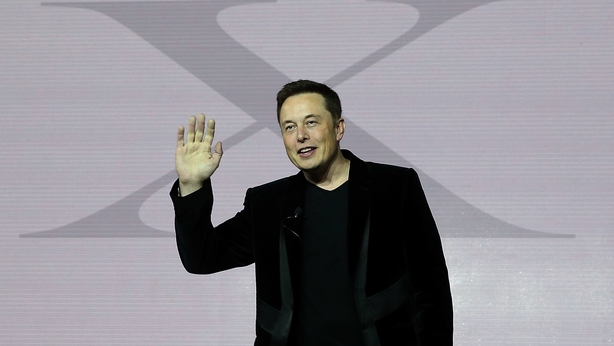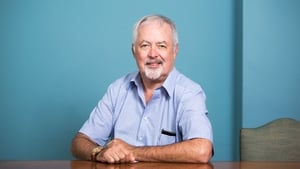Opinion: corporate life in the world of Michael O'Leary, Mark Zuckerberg and Jeff Bezos can be quite a rollercoaster for all involved
We are in the era of superstar CEOs. These are the leaders of large organisations who are always in the news, sometimes becoming more famous than the companies they lead. The list of these superstars is long and varied, including Michael O'Leary (Ryanair), Elon Musk (Tesla), Jeff Bezos (Amazon) and the late Steve Jobs (Apple). They all have several characteristics in common. They are extremely intelligent, charismatic, hard-working, and creative, and they have all taken their businesses to amazing heights. Unfortunately, they are also all difficult and demanding bosses, and often incredibly unpleasant people who create a mix of admiration, devotion, dread and disgust from their employees.
O’Leary built Ryanair from a handful of planes in the 1980s to become Europe’s largest air carrier. For years, he was the highly visible face of Ryanair, but as criticisms of the airline have built up and as labor troubles have mounted, we have seen less of his bombast and publicity stunts and more of his halting and often unsuccessful efforts to project an air of stability and reassurance.
We need your consent to load this rte-player contentWe use rte-player to manage extra content that can set cookies on your device and collect data about your activity. Please review their details and accept them to load the content.Manage Preferences
From RTÉ Radio 1's News At One, London Independent Travel Editor, Simon Calder on Ryanair's recent video message to staff from management which comes against a backdrop of a slump in profits
Musk is an innovator who has built several companies, notably Tesla. He produces some of the best cars in the world and has made massive contributions to the acceptance and advancement of electric vehicles. On the other hand, his arrogance and personal instability continue to threaten the viability of Tesla and his abrasive and erratic behaviour has created massive problems in his workplaces.
Bezos has built Amazon from a small online book seller to one of the most successful companies in the world, with services that range from retail to cloud computing and electronic book publishing. Like Jobs and Musk, Bezos has a reputation as highly demanding employer who is more than willing to demean and verbally abuse employees and vendors.
We need your consent to load this rte-player contentWe use rte-player to manage extra content that can set cookies on your device and collect data about your activity. Please review their details and accept them to load the content.Manage Preferences
From RTÉ 2fm's Dave Fanning Show, Karlin Lillington from the Irish Times profiles Jeff Bezos
Jobs was the driving force behind and the face of Apple for many years, but he was also fired by age of 30, only to be bought back a decade later. He was the responsible for many of the key advances in computing and digital devices in the last 30 years, and his leadership was critical in making Apple one of the most valuable companies in the world. By all accounts, he was also a terrible person. He treated his employees terribly, demeaning and insulting them. About the best that can be said about his was that he was equally rude to people who were not his employees, and showered insults on anyone who did not meet his standards.
Some CEOs manage to achieve outstanding business success and public notice without becoming abusive narcissists. For example, Warren Buffett is one of the most widely respected investors in the world (he is often referred to as the Oracle of Omaha), but he is also well known as a patient, thoughtful and effective manager who prizes stability and who treats employees and associates with consideration.
We need your consent to load this rte-player contentWe use rte-player to manage extra content that can set cookies on your device and collect data about your activity. Please review their details and accept them to load the content.Manage Preferences
From RTÉ Radio 1's The Business, PR Caroline Kennedy and Melrona Kirrane from DCU discuss how the CEO became the superstar CEO
But there is a big difference between the Buffetts and the O’Learys, Jobs, Musks and Bezos of the world. Buffett is like a kindly uncle who will give you sage advice and patient support, whereas O’Leary, Jobs, Musk or Bezos are more like your unpredictable brother in law. If you enter into a business venture with them, they will likely give you wild swings between dizzying success and demeaning failure.
The O’Leary-Jobs-Musk-Bezos model for business success features some consistent themes that help to account for successes and failures of their enterprises and the mix of excitement and dread that characterises their employees. First and foremost, all of these CEOS are or were creative and driven. People like this can build amazing things, but they are also prone to a wide range of psychological and psychosomatic disorders.

Second, their talents, and especially their success often contribute to two characteristics: (i) they do not suffer fools gladly, and (ii) they believe that almost everyone else is a fool. Third, they have often achieved success by bending or breaking the rules in some way, often by spotting opportunities that other people have ignored or by doing things that everyone else thinks cannot be done.
Unfortunately, people who rise to the top breaking rules can come to believe that the rules simply do not apply to them. For example, Jobs could not be bothered to go to the Department of Motor Vehicles (or send someone else to that office) to register his car. He spotted a loophole in California law that gave new owners six months to register their car and affix license plates, so he simple exchanged his car a new one, exactly the same model and colour, every six months and drove around without license plates.
Superstar CEOs are so smart, charismatic and focussed that they have a hard time putting themselves in the place of their less talented employees and customers
Most fundamentally, many superstar CEOs lack empathy. They are so smart, charismatic and focussed that they have a hard time putting themselves in the place of their less talented employees and customers. Abraham Lincoln once said "nearly all men can stand adversity, but if you want to test a man's character, give him power". He might as well have said "if you want to ruin a man’s character, give him success".
Narcissistic CEOs are constantly told by the press and by their subordinates how great they are, and they can fall into the trap of believing it. When celebrating a triumph, Roman generals were accompanied by a slave who rode in their chariot whispering into their ear "remember, you are mortal". Executive boardrooms would be well advised to employ someone for this same task.
The views expressed here are those of the author and do not represent or reflect the views of RTÉ







